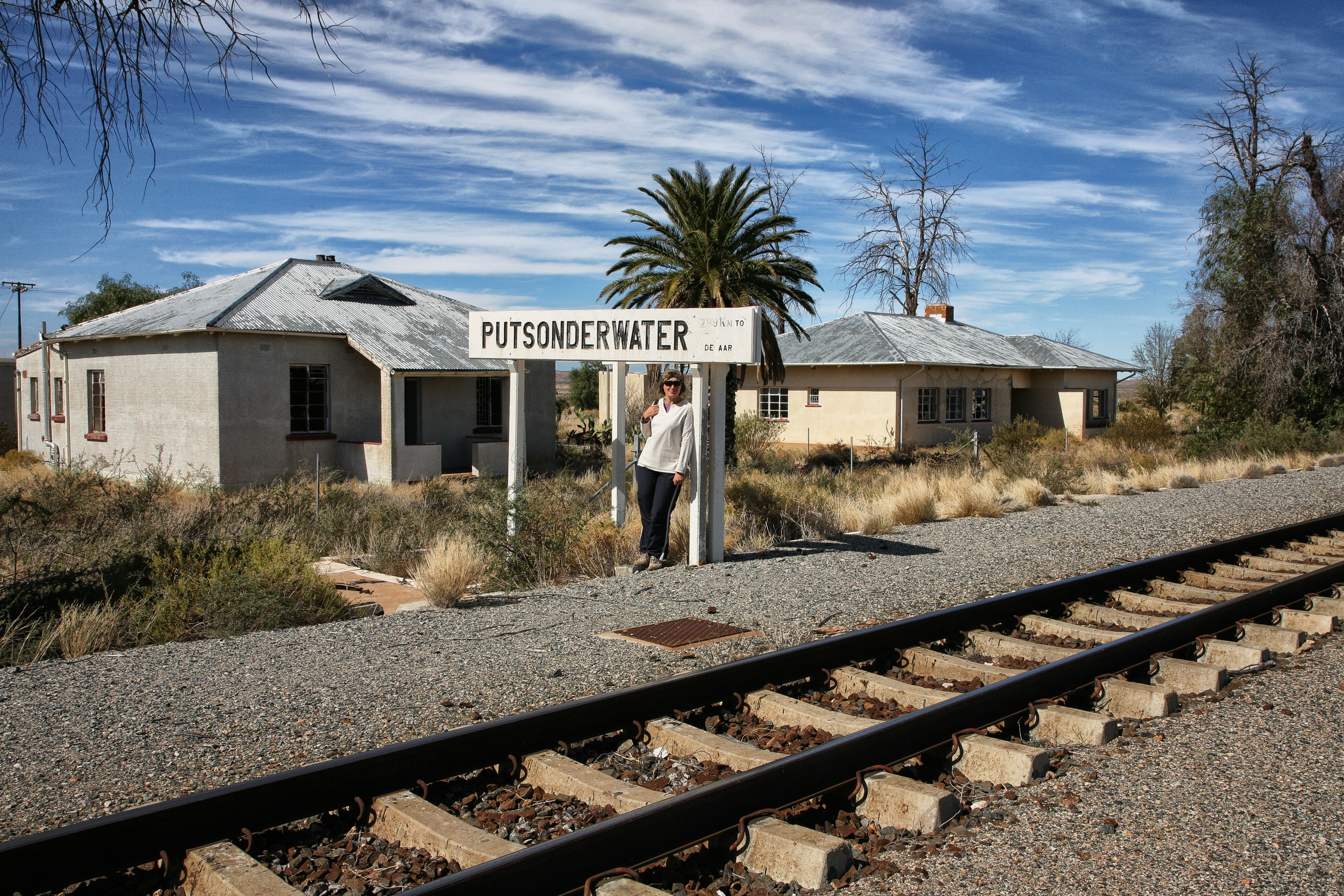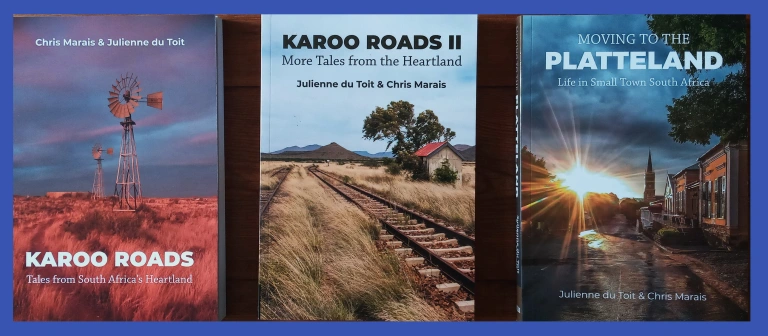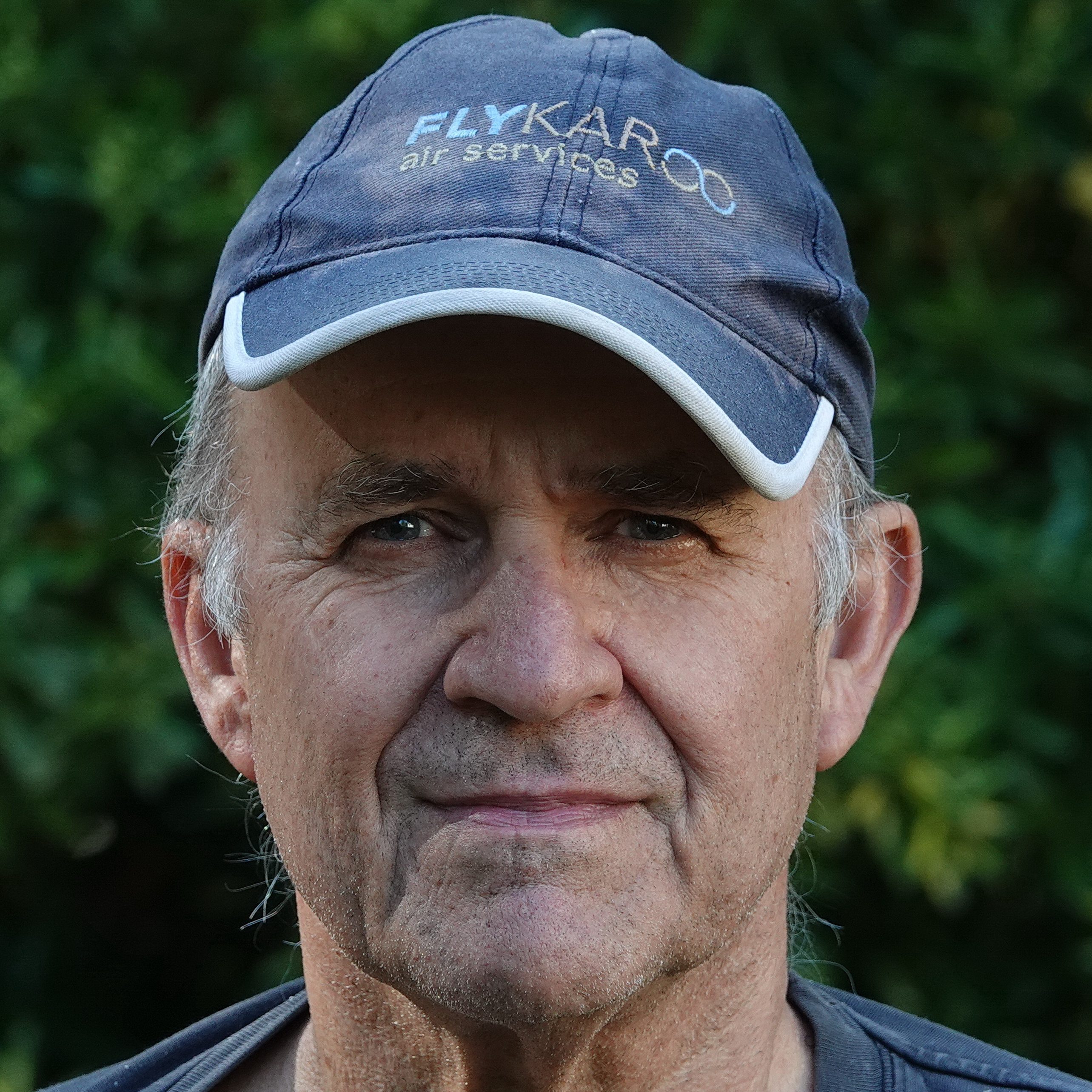All Article Properties:
{
"access_control": false,
"status": "publish",
"objectType": "Article",
"id": "1365633",
"signature": "Article:1365633",
"url": "https://staging.dailymaverick.co.za/article/2022-08-24-legends-of-a-grand-old-railway-station-in-the-karoo-putsonderwater-ghost-station/",
"shorturl": "https://staging.dailymaverick.co.za/article/1365633",
"slug": "legends-of-a-grand-old-railway-station-in-the-karoo-putsonderwater-ghost-station",
"contentType": {
"id": "1",
"name": "Article",
"slug": "article"
},
"views": 0,
"comments": 5,
"preview_limit": null,
"excludedFromGoogleSearchEngine": 0,
"title": "Legends of a grand old railway station in the Karoo – Putsonderwater Ghost Station",
"firstPublished": "2022-08-24 20:00:10",
"lastUpdate": "2022-08-22 13:32:18",
"categories": [
{
"id": "1215",
"name": "Magazine",
"signature": "Category:1215",
"slug": "magazine",
"typeId": {
"typeId": "1",
"name": "Daily Maverick",
"slug": "",
"includeInIssue": "0",
"shortened_domain": "",
"stylesheetClass": "",
"domain": "staging.dailymaverick.co.za",
"articleUrlPrefix": "",
"access_groups": "[]",
"locale": "",
"preview_limit": null
},
"parentId": null,
"parent": [],
"image": "",
"cover": "",
"logo": "",
"paid": "0",
"objectType": "Category",
"url": "https://staging.dailymaverick.co.za/category/magazine/",
"cssCode": "",
"template": "default",
"tagline": "",
"link_param": null,
"description": "",
"metaDescription": "",
"order": "0",
"pageId": null,
"articlesCount": null,
"allowComments": "1",
"accessType": "freecount",
"status": "1",
"children": [],
"cached": true
},
{
"id": "1825",
"name": "Maverick Life",
"signature": "Category:1825",
"slug": "maverick-life",
"typeId": {
"typeId": "1",
"name": "Daily Maverick",
"slug": "",
"includeInIssue": "0",
"shortened_domain": "",
"stylesheetClass": "",
"domain": "staging.dailymaverick.co.za",
"articleUrlPrefix": "",
"access_groups": "[]",
"locale": "",
"preview_limit": null
},
"parentId": null,
"parent": [],
"image": "",
"cover": "",
"logo": "",
"paid": "0",
"objectType": "Category",
"url": "https://staging.dailymaverick.co.za/category/maverick-life/",
"cssCode": "",
"template": "default",
"tagline": "",
"link_param": null,
"description": "",
"metaDescription": "",
"order": "0",
"pageId": null,
"articlesCount": null,
"allowComments": "1",
"accessType": "freecount",
"status": "1",
"children": [],
"cached": true
}
],
"content_length": 4151,
"contents": "<span style=\"font-weight: 400;\">There are rows of giant grassy lollipops on telephone pole sticks lining the dusty R383 on the road to Putsonderwater Station, between the Northern Cape towns of Kenhardt and Marydale.</span>\r\n\r\n<span style=\"font-weight: 400;\">Birdwatchers will immediately recognise these strange arrays as the enormous nests of sociable weaver colonies, the largest bird constructions in the world. Despite their shaggy appearance, each one is carefully built up by the ceaseless efforts of hundreds of the tiny, nondescript birds. </span>\r\n\r\n<span style=\"font-weight: 400;\">As many as 300 sociable weavers will live in a structure weighing a tonne or more, and every day each bird will bring back grass stalks to add to the nest. </span>\r\n\r\n<span style=\"font-weight: 400;\">After the “giant lollipops”, you come to what is left of Putsonderwater Station and the little village that once flourished alongside it.</span>\r\n\r\n<p><img loading=\"lazy\" class=\"size-full wp-image-1365634\" src=\"https://www.dailymaverick.co.za/wp-content/uploads/2022/08/Pic-1.jpg\" alt=\"The Lollipop Highway of sociable weaver nests leading the traveller to Putsonderwater Station.\" width=\"720\" height=\"480\" /> The Lollipop Highway of sociable weaver nests leading the traveller to Putsonderwater Station. Image: Chris Marais</p>\r\n\r\n<p><img loading=\"lazy\" class=\"size-full wp-image-1365635\" src=\"https://www.dailymaverick.co.za/wp-content/uploads/2022/08/Pic-2.jpg\" alt=\"The once-popular community church on the outskirts of the ghost village, Putsonderwater \" width=\"720\" height=\"480\" /> The once-popular community church on the outskirts of the ghost village. Image: Chris Marais</p>\r\n\r\n<p><img loading=\"lazy\" class=\"size-full wp-image-1365638\" src=\"https://www.dailymaverick.co.za/wp-content/uploads/2022/08/Pic-6.jpg\" alt=\"Posing at Putsonderwater – Julienne du Toit waits for a train that doesn’t stop here anymore.\" width=\"720\" height=\"480\" /> Posing at Putsonderwater – Julienne du Toit waits for a train that doesn’t stop here anymore. Image: Chris Marais</p>\r\n\r\n<span style=\"font-weight: 400;\">In South African mythology, the name Putsonderwater ranks alongside exotics like Shangri-La, Xanadu, Timbuktu, Camelot, the Hanging Gardens of Babylon, Dodge City, Mandalay, and the Irrawaddy River. Some exist today. Some exist no more. Some never existed at all. Many people use the name of Putsonderwater when referring to impossibly far-off destinations, without realising the settlement was once very much alive.</span>\r\n\r\n<span style=\"font-weight: 400;\">Up until the early 1990s, Putsonderwater was a notable stop on the railway route between Cape Town and Windhoek, capital city of Namibia. A general dealer, hotel, police station, post office, school and interdenominational church all thrived here. </span>\r\n\r\n<span style=\"font-weight: 400;\">In the late 1980s, Putsonderwater won the coveted Lady Duncan Trophy for best country railway station in South Africa. Former stationmaster Ken Magson remembered the gardens as being particularly beautiful.</span>\r\n\r\n<span style=\"font-weight: 400;\">“The winters were deliciously cold. The summers were dry and hot. I lived there with my wife and two sons, who went to boarding school in Marydale, about 36km away,” he said. “Visitors used to come to the station and remark on what an oasis it was. You didn’t laugh at Putsonderwater in my day.”</span>\r\n\r\n<p><img loading=\"lazy\" class=\"size-full wp-image-1365639\" src=\"https://www.dailymaverick.co.za/wp-content/uploads/2022/08/Pic-3.jpg\" alt=\"Is this possibly the famous Putsonderwater well?\" width=\"720\" height=\"480\" /> Is this possibly the famous Putsonderwater well?<br />Image: Chris Marais</p>\r\n\r\n<p><img loading=\"lazy\" class=\"size-full wp-image-1365637\" src=\"https://www.dailymaverick.co.za/wp-content/uploads/2022/08/Pic-4.jpg\" alt=\"Ranch house-style Kalahari stoep houses for cool summer breezes in Putsonderwater.\" width=\"720\" height=\"480\" /> Ranch house-style Kalahari stoep houses for cool summer breezes. Image: Chris Marais</p>\r\n\r\n<span style=\"font-weight: 400;\">According to local legend, the origin of the name “Putsonderwater” harks back to the early 1880s and an old farmer called David Ockhuis. He came to live at this spot and dug a well with his sons, Hans and Gert. They found a good vein of water and were well set. But the problem lay in the streams of </span><i><span style=\"font-weight: 400;\">trekboers</span></i><span style=\"font-weight: 400;\"> (seasonal graziers) who were moving all over South Africa during that unsettled era.</span>\r\n\r\n<span style=\"font-weight: 400;\">In such a dry land, a water source would be a great attraction to nomads passing through. Ockhuis, not having a title to the land, was afraid that if everyone found out about the water, he would lose his farm. So every time a trekboer arrived and asked about the well, he would say:</span>\r\n\r\n<span style=\"font-weight: 400;\">“</span><i><span style=\"font-weight: 400;\">Ja meneer, ek het ‘n put, maar dit is ‘n put sonder water</span></i><span style=\"font-weight: 400;\">.” (Yes, sir, I have a well, but it is a well without water.) So the place became Putzonderwater. In later years, the “z” was dropped in favour of the modern spelling. </span><b>DM/ML</b>\r\n\r\n<p><img loading=\"lazy\" class=\"size-full wp-image-1290388\" src=\"https://www.dailymaverick.co.za/wp-content/uploads/2022/06/book-offer_resize.png\" alt=\"“Karoo Roads”, “Karoo Roads II” and “Moving to the Platteland” by By Chris Marais and Julienne du Toit book covers.\" width=\"720\" height=\"315\" /> “Karoo Roads”, “Karoo Roads II” and “Moving to the Platteland” by Chris Marais and Julienne du Toit book covers.</p>\r\n\r\n<i><span style=\"font-weight: 400;\">For an insider’s view </span></i><a href=\"https://karoospace.co.za/\"><i><span style=\"font-weight: 400;\">on life in the Karoo</span></i></a><i><span style=\"font-weight: 400;\">, get the Three-Book Special of </span></i><span style=\"font-weight: 400;\">Karoo Roads I, Karoo Roads II and Moving to the Platteland – Life in Small Town South Africa</span><i><span style=\"font-weight: 400;\"> by Julienne du Toit and Chris Marais for only R720, including courier costs in South Africa. For more details, contact Julie at </span></i><a href=\"mailto:[email protected]\"><i><span style=\"font-weight: 400;\">[email protected]</span></i></a>\r\n\r\n<em>In case you missed it, also read </em><a href=\"https://www.dailymaverick.co.za/article/2022-08-17-richmond-between-johannesburg-and-cape-town-a-culture-town-worth-the-stop/\">Richmond, between Johannesburg and Cape Town – a culture town worth the stop</a>\r\n\r\nhttps://www.dailymaverick.co.za/article/2022-08-17-richmond-between-johannesburg-and-cape-town-a-culture-town-worth-the-stop/\r\n\r\n<hr />\r\n\r\nVisit <a href=\"https://www.dailymaverick.co.za?utm_source=direct&utm_medium=in_article_link&utm_campaign=homepage\"><em>Daily Maverick's</em> home page</a> for more news, analysis and investigations\r\n\r\n<hr />\r\n\r\n ",
"teaser": "Legends of a grand old railway station in the Karoo – Putsonderwater Ghost Station",
"externalUrl": "",
"sponsor": null,
"authors": [
{
"id": "78317",
"name": "Chris Marais",
"image": "https://www.dailymaverick.co.za/wp-content/uploads/2022/12/ADD-AS-USER-PIC-PLEASE-Author-Chris-Marais-e1670600126760.jpg",
"url": "https://staging.dailymaverick.co.za/author/chris-marais/",
"editorialName": "chris-marais",
"department": "",
"name_latin": ""
}
],
"description": "",
"keywords": [
{
"type": "Keyword",
"data": {
"keywordId": "2083",
"name": "South Africa",
"url": "https://staging.dailymaverick.co.za/keyword/south-africa/",
"slug": "south-africa",
"description": "",
"articlesCount": 0,
"replacedWith": null,
"display_name": "South Africa",
"translations": null
}
},
{
"type": "Keyword",
"data": {
"keywordId": "3766",
"name": "Karoo",
"url": "https://staging.dailymaverick.co.za/keyword/karoo/",
"slug": "karoo",
"description": "",
"articlesCount": 0,
"replacedWith": null,
"display_name": "Karoo",
"translations": null
}
},
{
"type": "Keyword",
"data": {
"keywordId": "8216",
"name": "Travel",
"url": "https://staging.dailymaverick.co.za/keyword/travel/",
"slug": "travel",
"description": "",
"articlesCount": 0,
"replacedWith": null,
"display_name": "Travel",
"translations": null
}
},
{
"type": "Keyword",
"data": {
"keywordId": "9318",
"name": "Northern Cape",
"url": "https://staging.dailymaverick.co.za/keyword/northern-cape/",
"slug": "northern-cape",
"description": "",
"articlesCount": 0,
"replacedWith": null,
"display_name": "Northern Cape",
"translations": null
}
},
{
"type": "Keyword",
"data": {
"keywordId": "349162",
"name": "Putsonderwater",
"url": "https://staging.dailymaverick.co.za/keyword/putsonderwater/",
"slug": "putsonderwater",
"description": "",
"articlesCount": 0,
"replacedWith": null,
"display_name": "Putsonderwater",
"translations": null
}
}
],
"short_summary": null,
"source": null,
"related": [],
"options": [],
"attachments": [
{
"id": "83784",
"name": "“Karoo Roads”, “Karoo Roads II” and “Moving to the Platteland” by Chris Marais and Julienne du Toit book covers.",
"description": "<span style=\"font-weight: 400;\">There are rows of giant grassy lollipops on telephone pole sticks lining the dusty R383 on the road to Putsonderwater Station, between the Northern Cape towns of Kenhardt and Marydale.</span>\r\n\r\n<span style=\"font-weight: 400;\">Birdwatchers will immediately recognise these strange arrays as the enormous nests of sociable weaver colonies, the largest bird constructions in the world. Despite their shaggy appearance, each one is carefully built up by the ceaseless efforts of hundreds of the tiny, nondescript birds. </span>\r\n\r\n<span style=\"font-weight: 400;\">As many as 300 sociable weavers will live in a structure weighing a tonne or more, and every day each bird will bring back grass stalks to add to the nest. </span>\r\n\r\n<span style=\"font-weight: 400;\">After the “giant lollipops”, you come to what is left of Putsonderwater Station and the little village that once flourished alongside it.</span>\r\n\r\n[caption id=\"attachment_1365634\" align=\"aligncenter\" width=\"720\"]<img class=\"size-full wp-image-1365634\" src=\"https://www.dailymaverick.co.za/wp-content/uploads/2022/08/Pic-1.jpg\" alt=\"The Lollipop Highway of sociable weaver nests leading the traveller to Putsonderwater Station.\" width=\"720\" height=\"480\" /> The Lollipop Highway of sociable weaver nests leading the traveller to Putsonderwater Station. Image: Chris Marais[/caption]\r\n\r\n[caption id=\"attachment_1365635\" align=\"aligncenter\" width=\"720\"]<img class=\"size-full wp-image-1365635\" src=\"https://www.dailymaverick.co.za/wp-content/uploads/2022/08/Pic-2.jpg\" alt=\"The once-popular community church on the outskirts of the ghost village, Putsonderwater \" width=\"720\" height=\"480\" /> The once-popular community church on the outskirts of the ghost village. Image: Chris Marais[/caption]\r\n\r\n[caption id=\"attachment_1365638\" align=\"aligncenter\" width=\"720\"]<img class=\"size-full wp-image-1365638\" src=\"https://www.dailymaverick.co.za/wp-content/uploads/2022/08/Pic-6.jpg\" alt=\"Posing at Putsonderwater – Julienne du Toit waits for a train that doesn’t stop here anymore.\" width=\"720\" height=\"480\" /> Posing at Putsonderwater – Julienne du Toit waits for a train that doesn’t stop here anymore. Image: Chris Marais[/caption]\r\n\r\n<span style=\"font-weight: 400;\">In South African mythology, the name Putsonderwater ranks alongside exotics like Shangri-La, Xanadu, Timbuktu, Camelot, the Hanging Gardens of Babylon, Dodge City, Mandalay, and the Irrawaddy River. Some exist today. Some exist no more. Some never existed at all. Many people use the name of Putsonderwater when referring to impossibly far-off destinations, without realising the settlement was once very much alive.</span>\r\n\r\n<span style=\"font-weight: 400;\">Up until the early 1990s, Putsonderwater was a notable stop on the railway route between Cape Town and Windhoek, capital city of Namibia. A general dealer, hotel, police station, post office, school and interdenominational church all thrived here. </span>\r\n\r\n<span style=\"font-weight: 400;\">In the late 1980s, Putsonderwater won the coveted Lady Duncan Trophy for best country railway station in South Africa. Former stationmaster Ken Magson remembered the gardens as being particularly beautiful.</span>\r\n\r\n<span style=\"font-weight: 400;\">“The winters were deliciously cold. The summers were dry and hot. I lived there with my wife and two sons, who went to boarding school in Marydale, about 36km away,” he said. “Visitors used to come to the station and remark on what an oasis it was. You didn’t laugh at Putsonderwater in my day.”</span>\r\n\r\n[caption id=\"attachment_1365639\" align=\"aligncenter\" width=\"720\"]<img class=\"size-full wp-image-1365639\" src=\"https://www.dailymaverick.co.za/wp-content/uploads/2022/08/Pic-3.jpg\" alt=\"Is this possibly the famous Putsonderwater well?\" width=\"720\" height=\"480\" /> Is this possibly the famous Putsonderwater well?<br />Image: Chris Marais[/caption]\r\n\r\n[caption id=\"attachment_1365637\" align=\"aligncenter\" width=\"720\"]<img class=\"size-full wp-image-1365637\" src=\"https://www.dailymaverick.co.za/wp-content/uploads/2022/08/Pic-4.jpg\" alt=\"Ranch house-style Kalahari stoep houses for cool summer breezes in Putsonderwater.\" width=\"720\" height=\"480\" /> Ranch house-style Kalahari stoep houses for cool summer breezes. Image: Chris Marais[/caption]\r\n\r\n<span style=\"font-weight: 400;\">According to local legend, the origin of the name “Putsonderwater” harks back to the early 1880s and an old farmer called David Ockhuis. He came to live at this spot and dug a well with his sons, Hans and Gert. They found a good vein of water and were well set. But the problem lay in the streams of </span><i><span style=\"font-weight: 400;\">trekboers</span></i><span style=\"font-weight: 400;\"> (seasonal graziers) who were moving all over South Africa during that unsettled era.</span>\r\n\r\n<span style=\"font-weight: 400;\">In such a dry land, a water source would be a great attraction to nomads passing through. Ockhuis, not having a title to the land, was afraid that if everyone found out about the water, he would lose his farm. So every time a trekboer arrived and asked about the well, he would say:</span>\r\n\r\n<span style=\"font-weight: 400;\">“</span><i><span style=\"font-weight: 400;\">Ja meneer, ek het ‘n put, maar dit is ‘n put sonder water</span></i><span style=\"font-weight: 400;\">.” (Yes, sir, I have a well, but it is a well without water.) So the place became Putzonderwater. In later years, the “z” was dropped in favour of the modern spelling. </span><b>DM/ML</b>\r\n\r\n[caption id=\"attachment_1290388\" align=\"aligncenter\" width=\"720\"]<img class=\"size-full wp-image-1290388\" src=\"https://www.dailymaverick.co.za/wp-content/uploads/2022/06/book-offer_resize.png\" alt=\"“Karoo Roads”, “Karoo Roads II” and “Moving to the Platteland” by By Chris Marais and Julienne du Toit book covers.\" width=\"720\" height=\"315\" /> “Karoo Roads”, “Karoo Roads II” and “Moving to the Platteland” by Chris Marais and Julienne du Toit book covers.[/caption]\r\n\r\n<i><span style=\"font-weight: 400;\">For an insider’s view </span></i><a href=\"https://karoospace.co.za/\"><i><span style=\"font-weight: 400;\">on life in the Karoo</span></i></a><i><span style=\"font-weight: 400;\">, get the Three-Book Special of </span></i><span style=\"font-weight: 400;\">Karoo Roads I, Karoo Roads II and Moving to the Platteland – Life in Small Town South Africa</span><i><span style=\"font-weight: 400;\"> by Julienne du Toit and Chris Marais for only R720, including courier costs in South Africa. For more details, contact Julie at </span></i><a href=\"mailto:[email protected]\"><i><span style=\"font-weight: 400;\">[email protected]</span></i></a>\r\n\r\n<em>In case you missed it, also read </em><a href=\"https://www.dailymaverick.co.za/article/2022-08-17-richmond-between-johannesburg-and-cape-town-a-culture-town-worth-the-stop/\">Richmond, between Johannesburg and Cape Town – a culture town worth the stop</a>\r\n\r\nhttps://www.dailymaverick.co.za/article/2022-08-17-richmond-between-johannesburg-and-cape-town-a-culture-town-worth-the-stop/\r\n\r\n<hr />\r\n\r\nVisit <a href=\"https://www.dailymaverick.co.za?utm_source=direct&utm_medium=in_article_link&utm_campaign=homepage\"><em>Daily Maverick's</em> home page</a> for more news, analysis and investigations\r\n\r\n<hr />\r\n\r\n ",
"focal": "50% 50%",
"width": 0,
"height": 0,
"url": "https://dmcdn.whitebeard.net/dailymaverick/wp-content/uploads/2022/08/Pic-5.jpg",
"transforms": [
{
"x": "200",
"y": "100",
"url": "https://dmcdn.whitebeard.net/i/KIZf58De5KeJ713AIANpjehkD18=/200x100/smart/filters:strip_exif()/file/dailymaverick/wp-content/uploads/2022/08/Pic-5.jpg"
},
{
"x": "450",
"y": "0",
"url": "https://dmcdn.whitebeard.net/i/opEMVXvtqFoEDxziBUBY3i-pCVo=/450x0/smart/file/dailymaverick/wp-content/uploads/2022/08/Pic-5.jpg"
},
{
"x": "800",
"y": "0",
"url": "https://dmcdn.whitebeard.net/i/i4uXxWwYFPvec34wQQAeS3FBhmg=/800x0/smart/filters:strip_exif()/file/dailymaverick/wp-content/uploads/2022/08/Pic-5.jpg"
},
{
"x": "1200",
"y": "0",
"url": "https://dmcdn.whitebeard.net/i/9h4rGlFbQdAt24xtsBprC2yijU4=/1200x0/smart/filters:strip_exif()/file/dailymaverick/wp-content/uploads/2022/08/Pic-5.jpg"
},
{
"x": "1600",
"y": "0",
"url": "https://dmcdn.whitebeard.net/i/c74kGbDUi437Tl8vuTLOxKM_Zhw=/1600x0/smart/filters:strip_exif()/file/dailymaverick/wp-content/uploads/2022/08/Pic-5.jpg"
}
],
"url_thumbnail": "https://dmcdn.whitebeard.net/i/KIZf58De5KeJ713AIANpjehkD18=/200x100/smart/filters:strip_exif()/file/dailymaverick/wp-content/uploads/2022/08/Pic-5.jpg",
"url_medium": "https://dmcdn.whitebeard.net/i/opEMVXvtqFoEDxziBUBY3i-pCVo=/450x0/smart/file/dailymaverick/wp-content/uploads/2022/08/Pic-5.jpg",
"url_large": "https://dmcdn.whitebeard.net/i/i4uXxWwYFPvec34wQQAeS3FBhmg=/800x0/smart/filters:strip_exif()/file/dailymaverick/wp-content/uploads/2022/08/Pic-5.jpg",
"url_xl": "https://dmcdn.whitebeard.net/i/9h4rGlFbQdAt24xtsBprC2yijU4=/1200x0/smart/filters:strip_exif()/file/dailymaverick/wp-content/uploads/2022/08/Pic-5.jpg",
"url_xxl": "https://dmcdn.whitebeard.net/i/c74kGbDUi437Tl8vuTLOxKM_Zhw=/1600x0/smart/filters:strip_exif()/file/dailymaverick/wp-content/uploads/2022/08/Pic-5.jpg",
"type": "image"
}
],
"summary": "In South African mythology, the name Putsonderwater ranks alongside exotics like Shangri-La, Xanadu, Timbuktu, Camelot, the Hanging Gardens of Babylon, Dodge City, Mandalay and the Irrawaddy River. Some exist today. Some exist no more. Some never existed at all. ",
"template_type": null,
"dm_custom_section_label": null,
"elements": [],
"seo": {
"search_title": "Legends of a grand old railway station in the Karoo – Putsonderwater Ghost Station",
"search_description": "<span style=\"font-weight: 400;\">There are rows of giant grassy lollipops on telephone pole sticks lining the dusty R383 on the road to Putsonderwater Station, between the Northern Cape towns of Kenhar",
"social_title": "Legends of a grand old railway station in the Karoo – Putsonderwater Ghost Station",
"social_description": "<span style=\"font-weight: 400;\">There are rows of giant grassy lollipops on telephone pole sticks lining the dusty R383 on the road to Putsonderwater Station, between the Northern Cape towns of Kenhar",
"social_image": ""
},
"cached": true,
"access_allowed": true
}  The Lollipop Highway of sociable weaver nests leading the traveller to Putsonderwater Station. Image: Chris Marais
The Lollipop Highway of sociable weaver nests leading the traveller to Putsonderwater Station. Image: Chris Marais The once-popular community church on the outskirts of the ghost village. Image: Chris Marais
The once-popular community church on the outskirts of the ghost village. Image: Chris Marais Posing at Putsonderwater – Julienne du Toit waits for a train that doesn’t stop here anymore. Image: Chris Marais
Posing at Putsonderwater – Julienne du Toit waits for a train that doesn’t stop here anymore. Image: Chris Marais Is this possibly the famous Putsonderwater well?
Is this possibly the famous Putsonderwater well? Ranch house-style Kalahari stoep houses for cool summer breezes. Image: Chris Marais
Ranch house-style Kalahari stoep houses for cool summer breezes. Image: Chris Marais “Karoo Roads”, “Karoo Roads II” and “Moving to the Platteland” by Chris Marais and Julienne du Toit book covers.
“Karoo Roads”, “Karoo Roads II” and “Moving to the Platteland” by Chris Marais and Julienne du Toit book covers.




